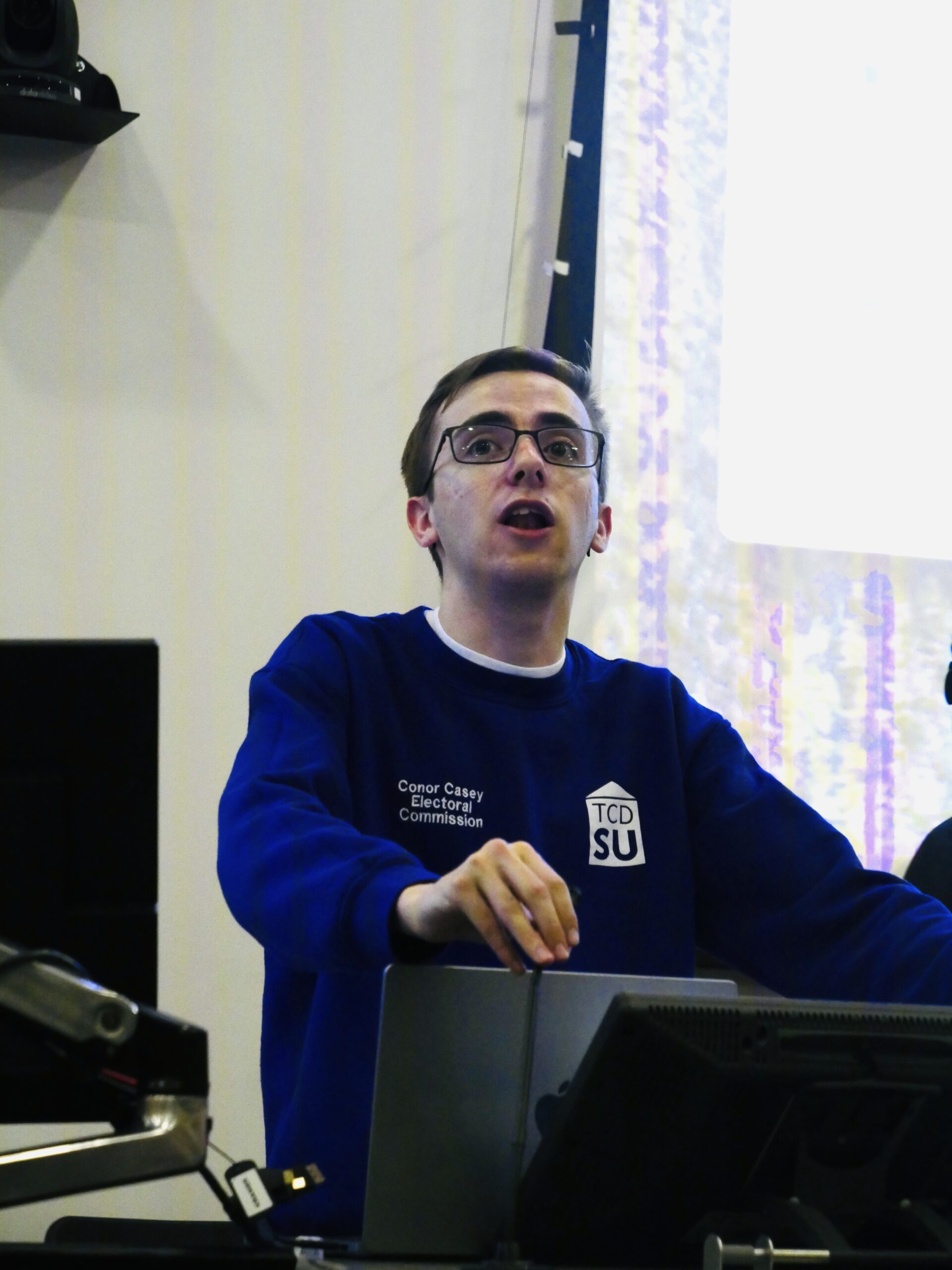At the first Student Council meeting of the year, held in the Stanley Quek lecture theatre in TBSI on Tuesday evening, only 21 out of 45 elections were held for the various available positions on Trinity College Dublin Students’ Union (TCDSU) committees.
Elections were open to fill positions on the Electoral Commission (EC), the Education Committee, the Welfare & Equality Committee, the Communications & Marketing Committee, the Trinity Joint Honours (TJH) Committee, the International Committee, the Working Student Accommodations Working Group, the Campaigns Committee, the Access Committee and the Engagement Working Group.
The only groups for which elections were held were the EC, the Education Committee, the Welfare & Equality Committee and the Communications & Marketing Committee. All available positions were filled on these committees and notably, the Education Committee appointed a Parent/Legal Guardian representative for the first time in five years.
Before any elections were held, Conor Casey, Chair of Council and the EC, decided to move forward a number of motions, delaying the start to elections.
Last academic year, council passed a motion to discontinue its use of Eviabi as an online voting system due to perceived barriers to engagement including the need to pre-register to vote. Therefore, for each election held at council this year, all elections were held via a paper balloting system.
For each election, voting members had to wait to receive a ballot paper, write the position up for election at the top, mark which nomination they preferred and wait for their ballot paper to be collected by a member of the EC. Then, members of the EC would count the ballots and Casey would announce the result. For one election, this process lasted 14 minutes and 46 seconds.
Before discontinuing the use of the online voting system, council members had to log in to the system and their votes could be made, collected and counted immediately before being announced.
Casey also chose to introduce reports and motions whilst the above process was in action, causing further delay to the announcement of results and further delays to holding more elections.
Casey’s introduction of the EC’s Report invited the most questions, mostly concerning the switch to paper balloting for the Class rep elections. Maria Healey, the fourth-year class representative for Chemistry and Biosciences, raised the issue that she was unable to vote in class representative elections in TBSI, where she is carrying out her capstone project. The EC decided to only allow a student to vote for a certain class representative in the physical campus space with which that class representative would be associated. In the case of Chemistry and Biosciences, this is the Hamilton building.
Issues were also raised concerning the number of students who had problems using the nomination form for class representatives.
Casey said that the reasoning for paper balloting, and an assessment of it, would be presented to members in the EC report at the third council of the year, due to be held in November.
Council was also delayed through limited explanation of the process to members, with one class representative asking whether they could also run for the available positions on Union committees. With the exception of the EC, this is permitted and often encouraged. Another class representative also asked for an explanation of the various Committees and their positions.
Members of the EC were also slow to remember microphones and reach attendees who wished to speak, causing further delays.







